What is the Best Age to Start Guitar Lessons?
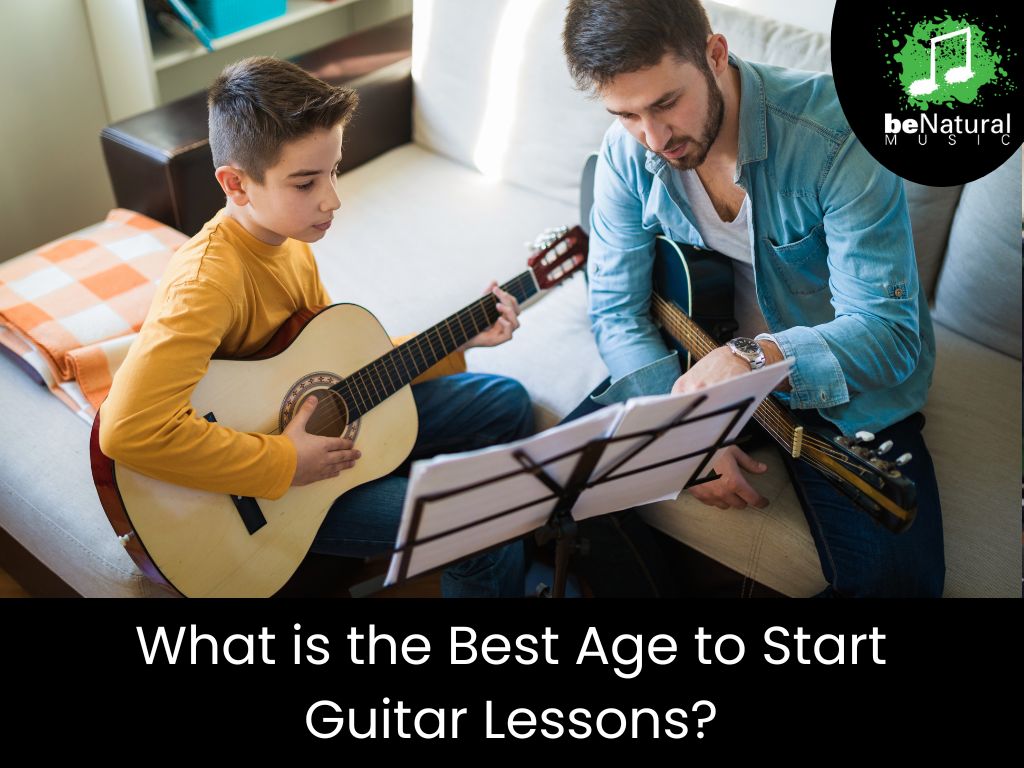
Learning to play the guitar is an exciting and rewarding experience for a child. Not only does it provide an outlet for creative expression, but it also helps to improve memory, develop fine motor skills, and foster a sense of confidence.
Yet, while some parents may choose to introduce their kids to the guitar at a young age – there are quite a few factors to consider before enrolling your child in lessons. Factors such as the child’s attention span, physical abilities, and maturity level should all be taken into account.
So, when is the best age to start learning guitar? Here’s everything you need to know:
What is the Best Age to Play Guitar?
For most students, the best age to begin guitar lessons is ten years old and up. This is because, by this age, children typically have longer attention spans and a greater sense of self-discipline. Additionally, their hands are larger and stronger, making it easier to manipulate the strings and frets on the guitar.
That being said, it’s important to note that every child is unique, and their readiness to learn the guitar will vary. Some children may be ready to start at a younger age, while others may not be ready until they are in their teenage years. So be sure to take the time to observe your child and see what works best for them.
What Factors Should Parents Consider Before Signing Their Child Up for Guitar Lessons?
Before signing your child up for guitar lessons, there are several factors that parents should consider. Here are some of the most important ones:
Your Child’s Level of Interest in Playing Guitar

The most critical factor to consider is your child’s level of interest in learning guitar. If your child is truly interested in learning how to play, then it will be much easier for them to stay engaged and make progress through their lessons. However, if they are only doing it because you want them to learn how to play, chances are that they won’t stick with it for very long.
As your child ages, they may become more interested in learning the guitar and be better equipped to do so. So, if your child is not yet showing an interest in the instrument, it may be best to wait until they are older before introducing them to guitar lessons.
Your Child’s Ability to Focus and Follow Instructions
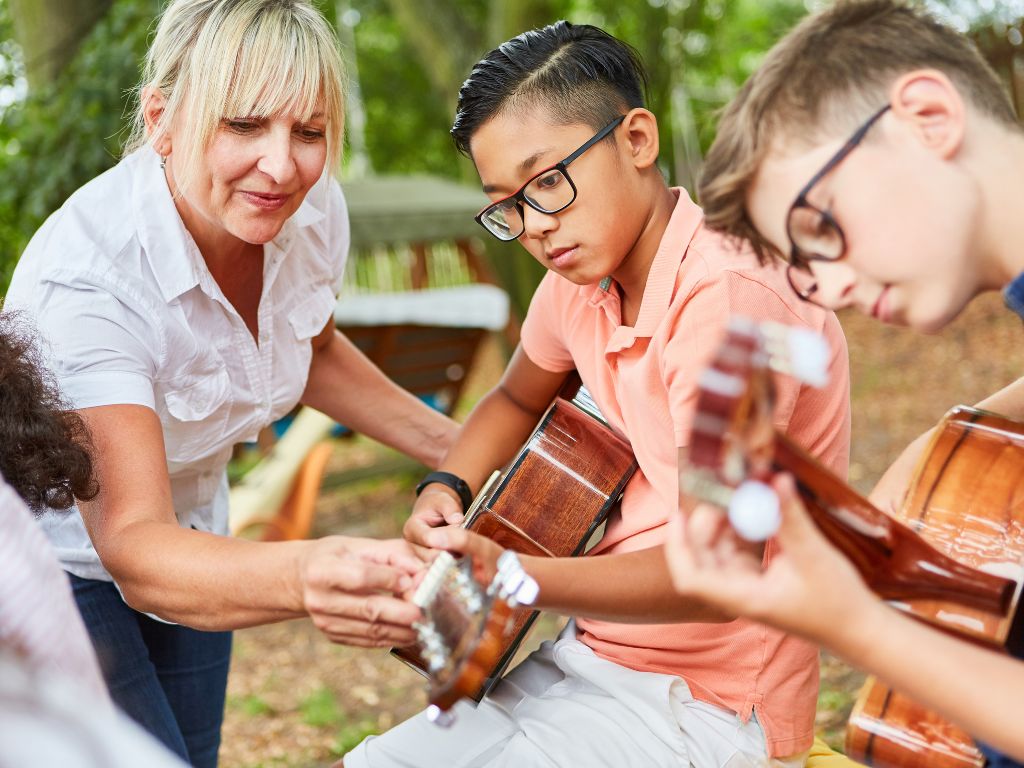
Learning guitar requires patience, discipline, and the ability to pay attention for extended periods of time. So, in order for your child to progress in their guitar lessons, they must be able to focus and follow instructions.
Research suggests that most children are able to concentrate for about 20-30 minutes at a time by the age of ten. However, a child’s ability to focus and follow instructions will differ depending on their individual maturity level.
Your Child’s Coordination and Finger Dexterity
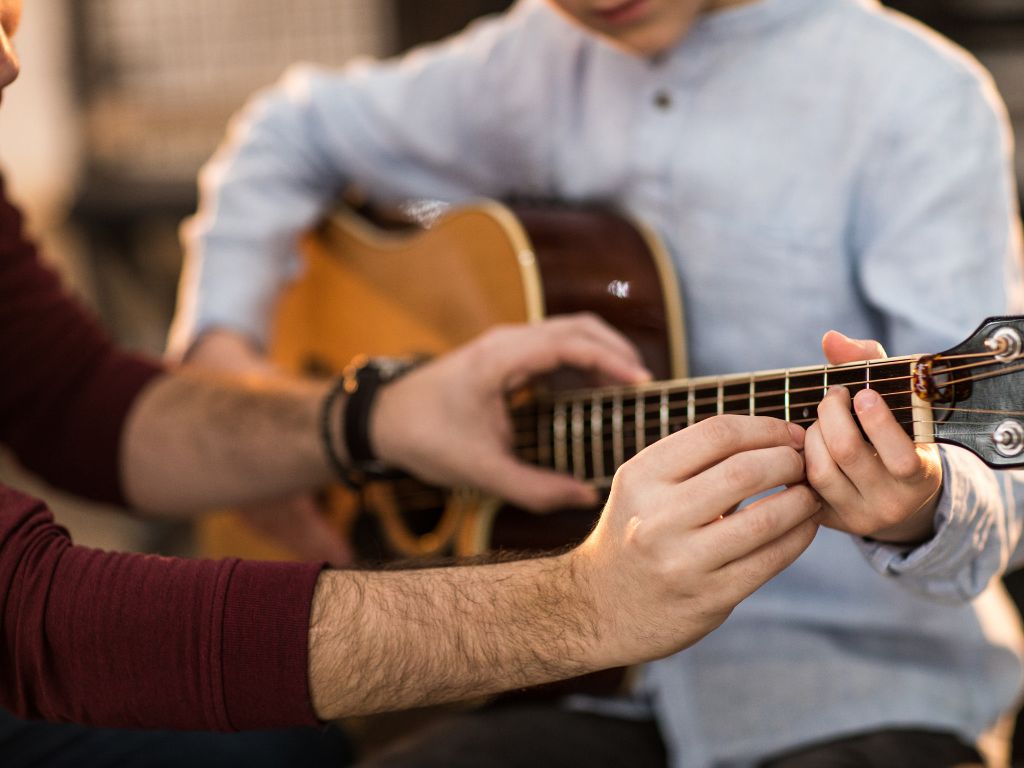
The coordination and finger dexterity required to play the guitar can be challenging for a child who is not yet physically developed enough. The smaller size of their hands and fingers may make it difficult for them to reach certain chords or manipulate strings.
Therefore, it’s important to consider your child’s physical development before starting guitar lessons. If they are still in the process of developing their fine motor skills, it may be best to wait until they are physically ready before enrolling them in lessons.
Your Child’s Maturity and Emotional Level
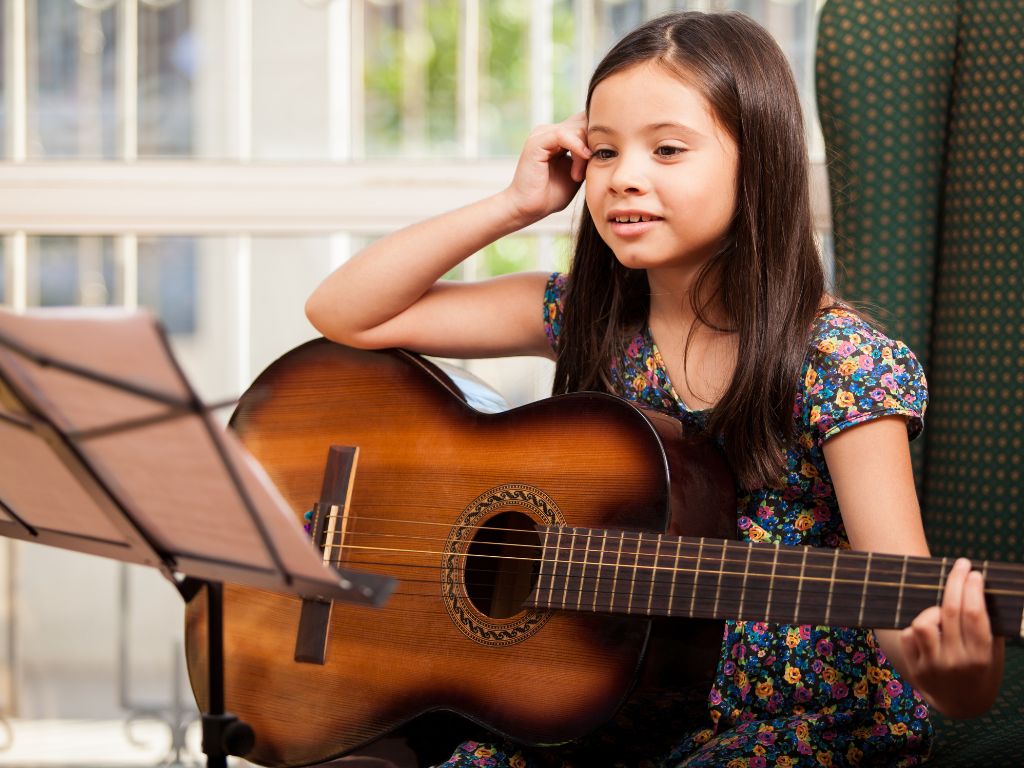
Another crucial factor to consider is your child’s maturity and emotional level. Learning an instrument, like the guitar, requires dedication, practice, and perseverance. It can be challenging and frustrating at times, especially when progress seems slow.
Therefore, assessing your child’s emotional maturity level is important before signing them up for guitar lessons. If they have a positive attitude, are willing to practice, and are receptive to constructive feedback, then they may be ready to start learning the guitar.
Tips for Parents to Help Their Child Get the Most Out of Guitar Lessons
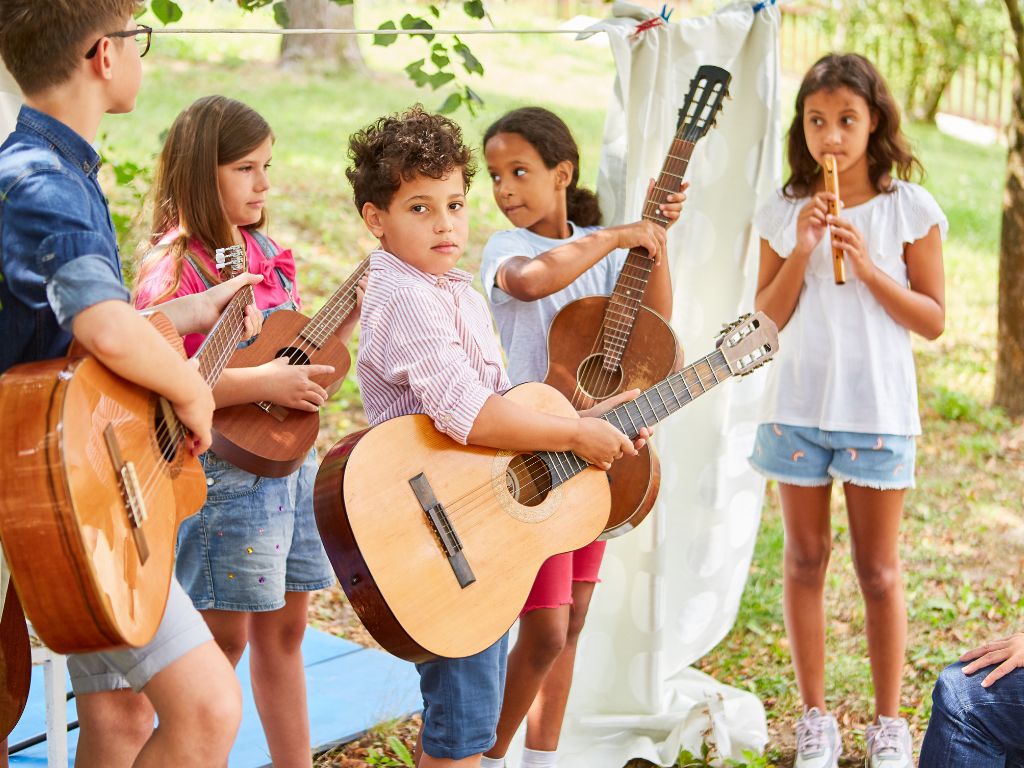
Once you have determined that your child is ready to start guitar lessons – there are a few things that you can do to help them get the most out of their experience.
Here are some helpful tips for parents:
Select the Right Guitar
Selecting the right guitar for your child is crucial in ensuring they have a positive learning experience. The type of guitar your child uses can affect their motivation, comfort level, and overall enjoyment of playing.
For beginners, it’s recommended to start with an acoustic guitar. They are simpler to use, have a softer sound, and require less setup time. When selecting an acoustic guitar, choose one that is appropriately sized for your child’s age and height. There are many options available on the market, so be sure to do your research and choose a reputable brand.
Find an Experienced Teacher
While there are plenty of free resources available online, the guidance of a qualified guitar teacher can help your child avoid developing bad habits.
Look for a guitar teacher who is experienced in working with children and has a teaching style that aligns with your child’s learning style. With the right teacher and curriculum, your child can develop a strong foundation in guitar playing and build upon their skills for years to come.
Help Your Child Practice Regularly
One of the best ways to ensure that your child gets the most out of their guitar lessons is by encouraging regular practice. Beginners should strive to dedicate at least 20 minutes daily to practice to probably develop their skills.
However, scheduling regular practice can be difficult, so establish a routine that works for your family. Set aside a specific time each day when your child will practice and try to make it fun by playing music they enjoy or challenging them with new techniques.
Be Patient and Encouraging
Learning an instrument can be a long and arduous process, so it’s essential to remain patient with your child. Encourage them to keep going even when they hit roadblocks and remind them that everything takes time.
Celebrate their accomplishments and successes, no matter how small they may seem. Your child will feel motivated to continue learning through your positive reinforcement and support.
In Conclusion
Learning to play the guitar is an incredibly rewarding experience that can positively shape your child’s development for years to come. By considering the factors above, you can ensure your child is ready and able to get the most out of their guitar lessons. With a positive attitude, dedication, and practice – there are no limits to what your child can achieve.
If you’re looking to sign your child up for guitar lessons, look no further than Be Natural Music. We offer both in-person and online classes for students of all skill levels. Our experienced teachers will help your child develop a foundation in guitar playing and foster their musical growth.
Inquire about classes today to learn more. We offer year-round courses in the Santa Cruz and Cupertino areas, as well as summer camps and short-term lessons.
